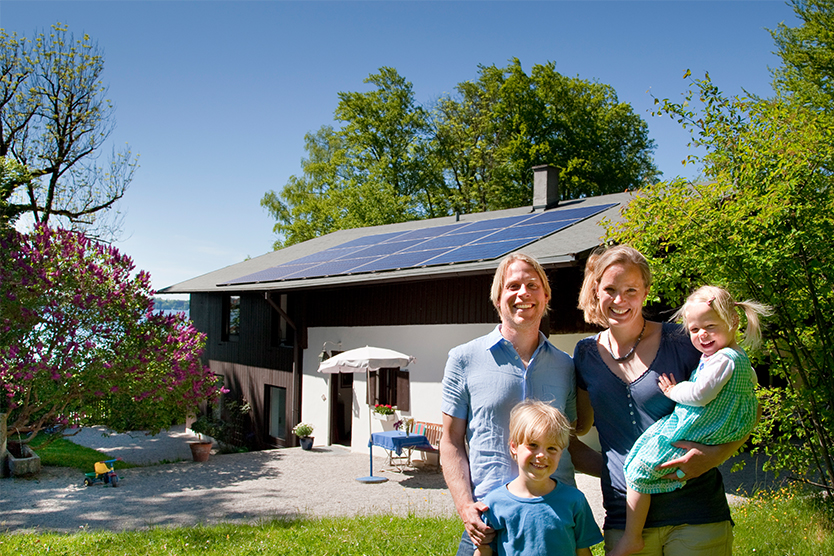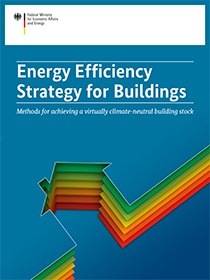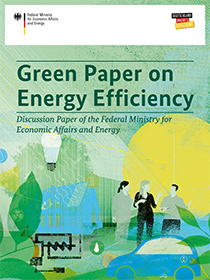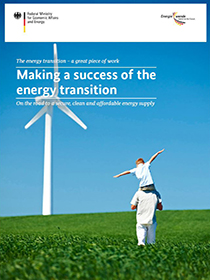Personalised information and advice is available throughout the whole process, from gaining an initial overview right through to securing a detailed analysis.
The initial overview: advisory services provided by consumer centres
If you’re looking to gain an initial overview and tips on how to conserve energy, the consumer centres are a good place to start. They offer a wide range of information services on their websites, over the phone, and can even come to your home.
"Building check" one of the services provided by the consumer centres
The ‘building check’ is a service designed for homeowners. It involves a two-hour appointment with an energy consultant from the consumer centre who will visit you at your home to take a closer look at your energy consumption and provide initial recommendations as to how you can best improve your energy efficiency. Your costs total a mere 20 Euros, because all of the energy advice provided and organised by the consumer centres is cofinanced by the Federal Ministry for Economic Affairs and Climate Action under the “Federal funding for energy advice from the consumer centres” programme. For further information, please call the freephone consumer-centre hotline on 0800 - 809 802 400.
"Heating checks" provided by the consumer centres
In addition to the ‘building check’, the consumer centres also offer a ‘heating check’ (launched at the start of October 2015), a useful service for anyone that owns a heating system. The heating check looks at the actual efficiency of the heating system when in use. It consists of a two-hour appointment with an energy consultant from the consumer centre who will visit you at home to provide you with practical tips on how to optimise your heating system, thus saving you money. This service costs a mere 40 Euros, as this energy advisory service is also cofinanced by federal funding from the Federal Ministry for Economic Affairs and Climate Action.
Practical tool: the modernisation wizard
The modernisation wizard provided by the Federal Ministry for Economic Affairs and Climate Action is an online tool which you can use to ‘modernise’ your house on your computer. First, you need to enter data about the current state of the building by answering questions, such as: When was the building built? How big is it? What kind of heating is installed? How old is the heating system? You can then choose between different modernisation options: Do you want to insulate the outer walls? Do you want to install new windows? Or are you looking to replace the heating system? You provide the information about your building and in just a few mouse clicks, the online tool will help you assess what modernisation measures will truly pay off for you (in German): www.sanierungskonfigurator.de.
On-site energy consultation with energy efficiency experts
Booking a one-on-one on-site consultation will make help you identify your specific modernisation needs and put together a coherent overall modernisation strategy for the building. To make sure that everyone can afford this advisory service, the Federal Ministry for Economic Affairs and Climate Action is providing part-funding for the costs. The energy consultant makes specific proposals on which modernisation measures suit the needs of your particular house and what government funding can be obtained to undertake these.
The on-site consultation is divided up into three steps. Please see our site (in German) Themenportal Deutschland macht`s effizient to learn more.
Tailored modernisation roadmap
The tailored modernisation roadmap (iSFP) is a software-supported instrument for the step-by-step energy-efficient refurbishment of buildings. The building energy consultant uses the iSFP to create an understandable overview of the refurbishment work to be carried out in a building and summarises these into sensible sets of measures. It points to untapped possibilities for energy conservation and the use of renewables, and also gives an estimate of the relevant investment costs and of the savings that could be achieved in terms of heating costs and carbon emissions.










